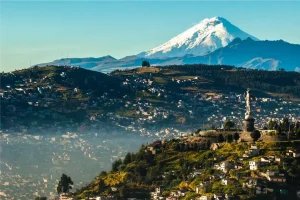
AM
✈ Transfer Quito (airport – hotel).
Welcome to Quito. A representative will welcome you and transfer you to your hotel. You will have free time to explore the city, relax and settle in.
Accommodation: In the 5-Star GO Quito Hotel/ Premium Room
Day 1 – Welcome to Quito AM ✈ Transfer Quito (airport – hotel). Welcome to Quito. A representative will welcome you and transfer you to your hotel. You will have free time to explore the city, relax and settle in. Accommodation: In the 5-Star GO Quito Hotel/ Premium Room Day 2 – Quito Old Town […]